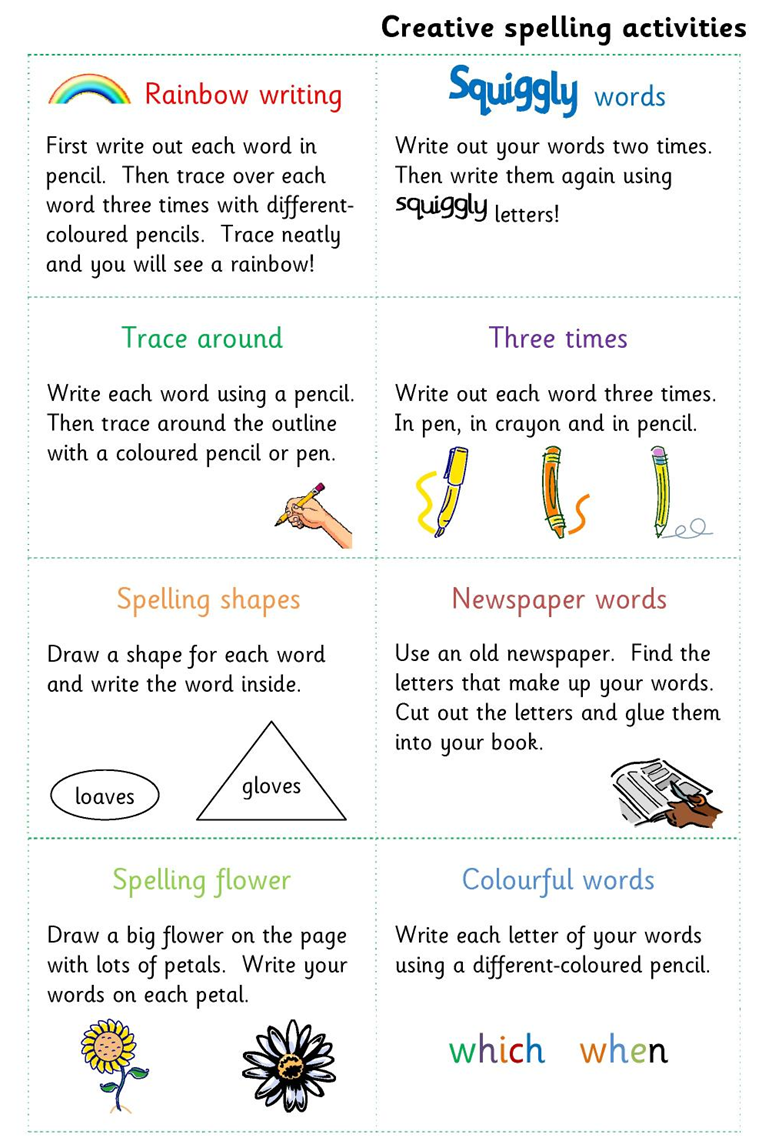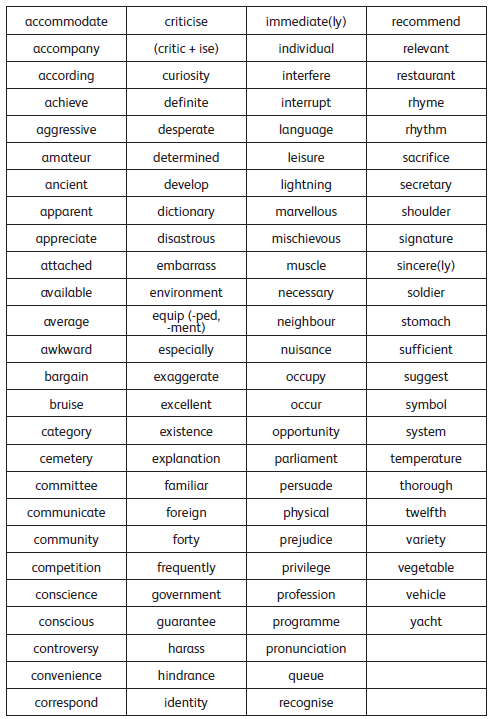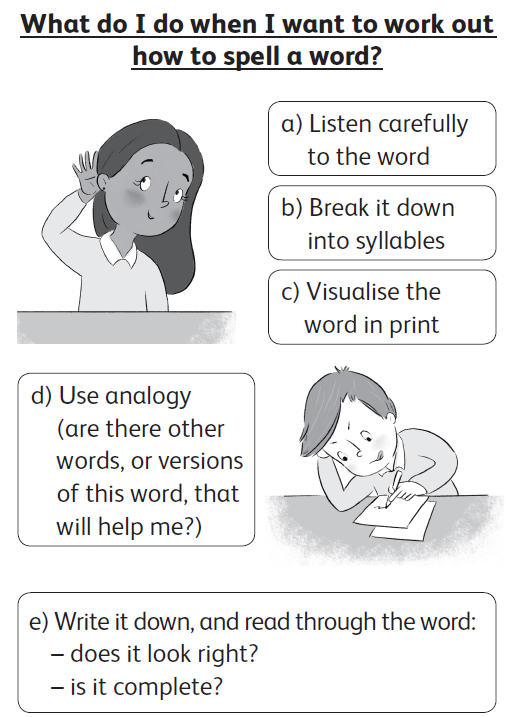Autumn 1 Spelling

WB: 13.10.25

Commonly Misspelled Words
- Words with silent letters: conscience, foreign, rhythm
- Words with double letters: accommodate, embarrass, successful
- Words with confusing vowels: believe, receive, beautiful, friend
- Words that change from simple forms: definitely, truly, until
- Homophones: there/their/they're, to/two/too, were/where/we're
WB: 6.10.25
Focus: adding suffixes to words ending in -fer
The focus here is on the spelling consequence of adding suffixes to a root word. Children learn
through investigation that the decision whether to double the ‘r’ at the end of the root word
depends on how the resulting word is to be pronounced, and where the stress falls in the new
word. If the second syllable is to be stressed, the ‘r’ needs to be doubled; if it is unstressed,
retain the single ‘r’.

WB: 29.9.25
Focus: words from the Year 5/6 word list
The value of working alphabetically through the word list is the opportunity afforded
for alliteration to aid memory. This unit, therefore, makes use of memorable, alliterative
sentences to help children to learn and remember the words.

WB: 22.9.25
The ‘i’ before ‘e’ except after ‘c’ rule is probably the most widely known and least understood
of spelling rules, as people omit the important bit: when the sound is /ee/. The unit reinforces
this through children’s investigation and practice before pointing out the relatively small
number of exceptions and providing a solution to the anomaly of either and neither.

WB: 15.9.25
Children will have been introduced step by step to the
first 60 words in the Year 5/6 word list (units 5, 10, 11 Autumn term; units 5, 11 Spring term;
units 6, 10, 12 Summer term). Many of these words may be unfamiliar to them initially, so
the emphasis has been on familiarisation through seeing, hearing and pronouncing the
words, breaking them down into syllables and using them in sentences. They have developed
techniques and strategies for remembering letter patterns, and identifying potentially
problematic points in the words (the ‘tricky bits’). This unit helps to remind children of the
words they have already met, and the strategies they have developed, before moving on to
introduce further words in the statutory list.


WB: 08.09.25

